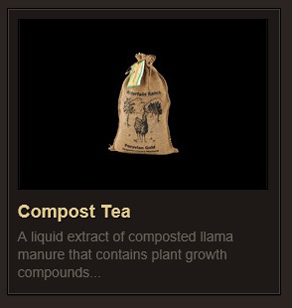 Look deep into nature, and then you will understand everything better. ~ Albert Einstein
Look deep into nature, and then you will understand everything better. ~ Albert Einstein
Compost tea is a liquid extract of compost that contains compounds for plant growth and beneficial microorganisms. Compost teas have been used for centuries in agriculture to promote healthy plants and soil. Historically these concoctions have been derived from a wide range of plant materials and animal manures, using a wide range of processing methods.
Aerating Compost Tea is a more recent notion that includes aeration technology to create optimum levels of oxygen for growth and reproduction of beneficial aerobic microorganisms. Compost teas are being made and used in large-scale cultivation, nurseries, lawn care, and residential gardens.
Compost tea is produced by steeping compost in water in order to extract beneficial microorganisms and compounds into solution. There are many different ways of make it, including with or without aeration, as well as with or without adding additional nutrient sources.
The method that is chosen when brewing is critical in ensuring your final brew contains the nutrients desired. In order to keep the organisms in the tea, brewing conditions must be closely watched and maintained to create the end product desired. The biological organisms that are active and performing a function will differ, depending on your compost ingredients; what you add to the brew; your brew temperature; the amount of oxygen in the brewer; and brew time.
Aerobic organisms are the most beneficial as they encourage the processes that a plant requires in order to grow without stress and with a greater resistance to disease. To improve the beneficial bacteria the compost tea must remain aerobic (greater than 5.5ppm oxygen). Anaerobic conditions (below 2 to 4 mg oxygen per L for example) during brewing can result in the growth of some quite detrimental microbes as well as produce some very harmful metabolites.
It is best to avoid extremely low oxygen concentrations while brewing. If low oxygen concentrations do occur, brewing must extend until the organisms stop growing on the added foods, so that oxygen will disperse back into the brew. The bacteria that cause human diseases almost always require anaerobic conditions in order to survive in competition with aerobic organisms.
Available in .125 cu. ft. bags.
Makes 100 gals. of composted llama manure tea.
Nectar of the Gods
Enhances plant growth and maximizes nutrient that are already available the your plants
Compost tea is a liquid extract of compost that contains compounds for plant growth and beneficial microorganisms. Compost teas have been used for centuries in agriculture to promote healthy plants and soil. Historically these concoctions have been derived from a wide range of plant materials and animal manures, using a wide range of processing methods.
KEY BENEFITS
Provides beneficial organisms needed to promote vigorous growth
- Enhanced plant growth as a result of using beneficial organisms to protect the plant surfaces
- The tea improves the retention of nutrients in the soil thus stimulating plant growth.
- Maximizes the nutrients that are readily available to the root system leading to a stronger healthier plant.
- Aides in decreasing the negative impact that chemical-based pesticides, herbicides and fertilizers have on beneficial micro-organisms in the ecosystem.
- Enhances the intake of nutrients by improving foliar uptake.






